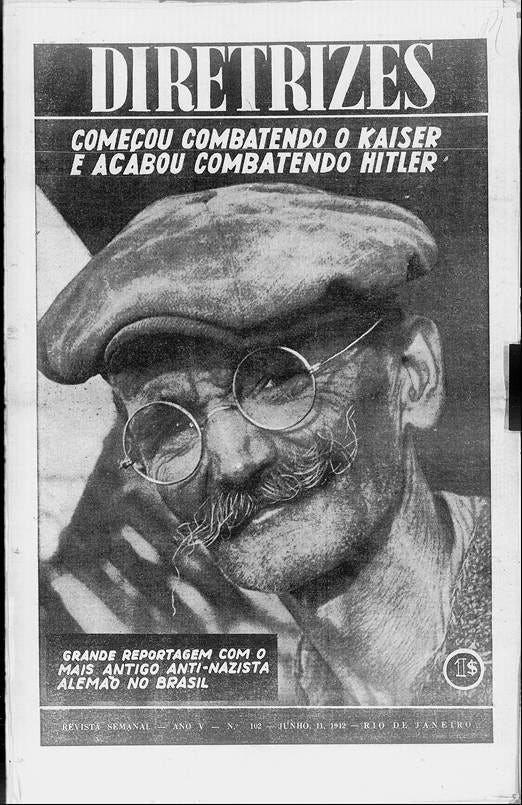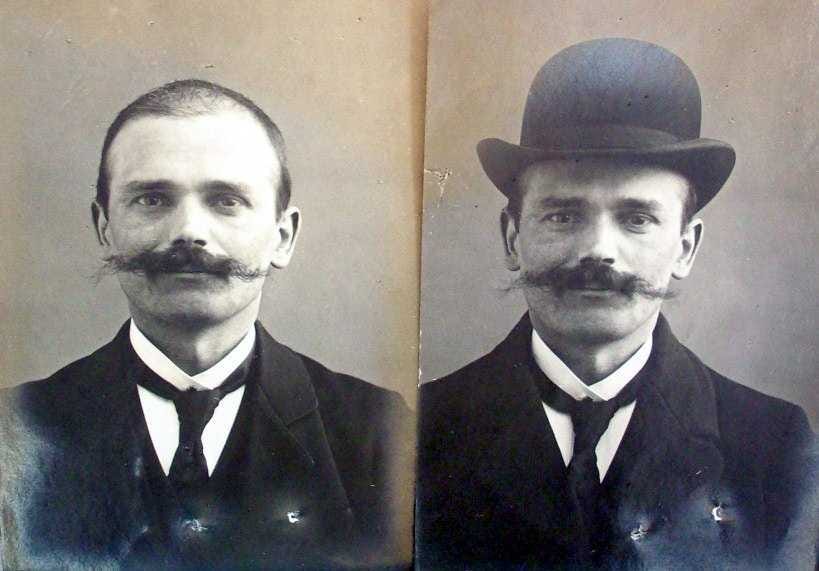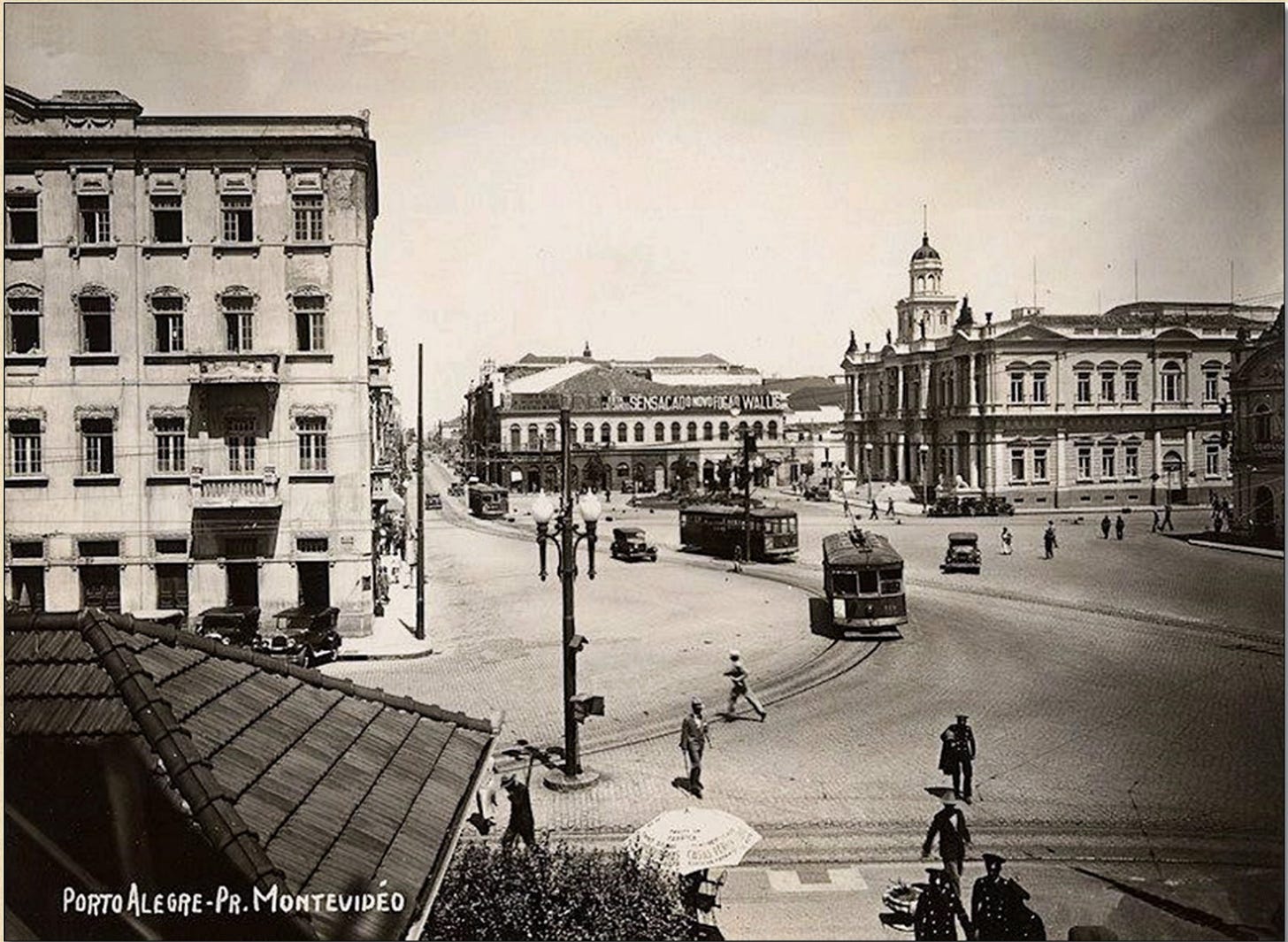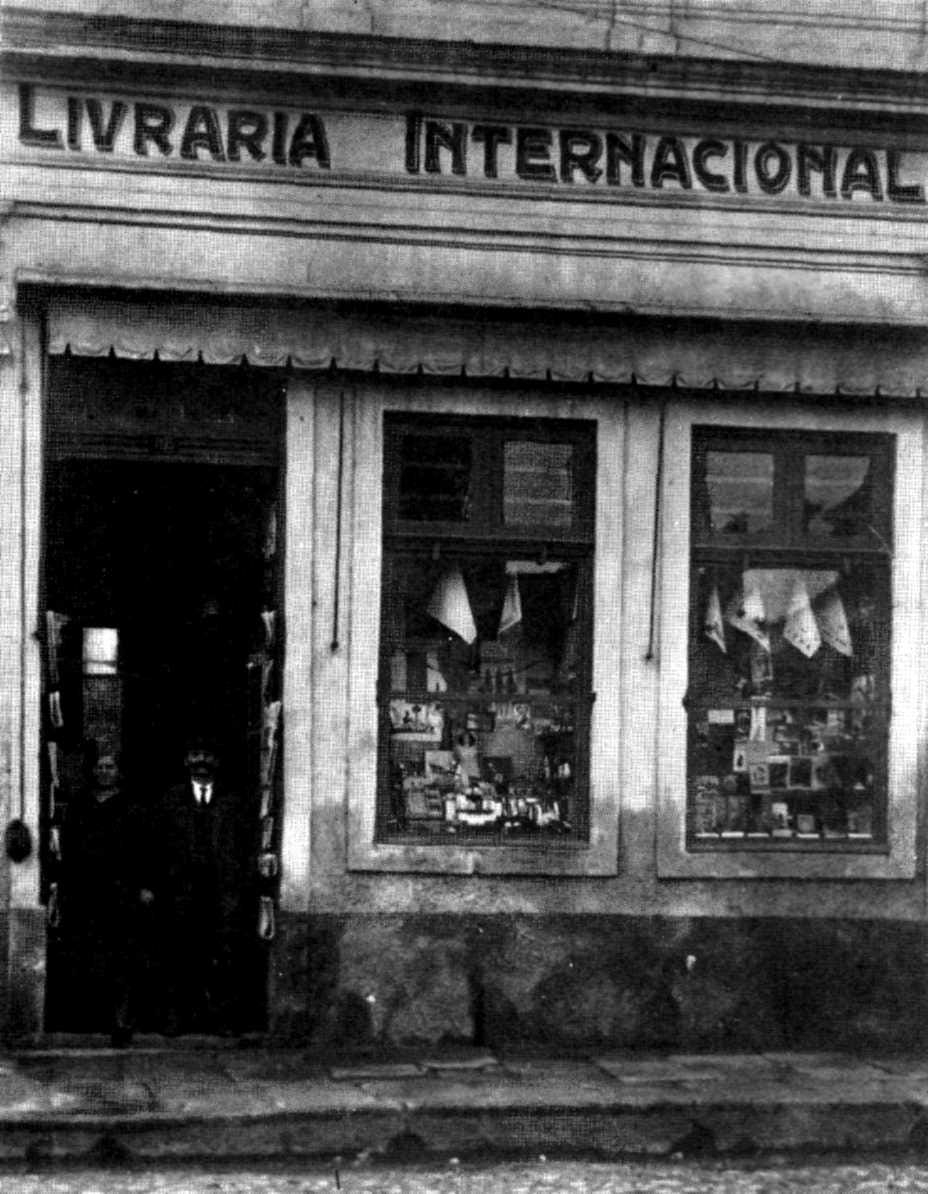In October 1945, sixty-six German-Brazilians petitioned the government of Brazil, demanding that they be recognized as anti-Nazi activists, unlike their compatriots who had sympathized with the Third Reich and were now being harassed. The lead petitioner was Friedrich Kniestedt, a seventy-two-year-old German-born anarchist brushmaker and editor who had been the leading figure in the Anti-Nazi movement in Brazil, in which anarchists played a significant role.
Let’s take a closer look at transnational anarchists fighting transnational militarism and fascism through the figure of Kniestedt. The reason is simple: to equip ourselves to deal with the current rise of the Far Right in many different countries and to discover the possibilities of an antifascist resistance with a solid anarchist bend. Kniestedt never joined any party and never committed an act of violence, yet he fought relentlessly against authoritarianism. He set out to fight the Kaiser and ended up fighting Hitler; he left his native land on the eve of the Great War only to confront the brownshirts in southern Brazil. Militants like Kniestedt re-imagined anarchist possibilities according to the new circumstances of repression and exile. They attacked authoritarianism from the Right as well as the Left and debated how much to collaborate with liberal groups to stem the tide of Hitlerism. German anarchists, in particular, fiercely countered the Nazified image of their homeland. All these ruminations are as relevant today as they were in 1933.

Friedrich Kniestedt was only a teenager when he became a socialist in the late 1880s when Bismarck’s Anti-Socialist Law was in full force. After 1890 when the repressive law was retired, an open socialist movement was again possible, and he continued to attend socialist meetings. Kniestedt veered toward anarchism as a journeyman, vowing to oppose centralism, authoritarianism, and militarism. He was active in the labor movement and started giving lectures, which resulted in several brushes with the law, including a nine-month prison sentence when he was twenty. He read Peter Kropotkin, Mikhail Bakunin, Pierre-Joseph Proudhon, Max Stirner, and especially Leo Tolstoy, who remained a lifelong inspiration for his anti-militarism and opposition to state violence. Through his independent activism, he befriended the well-known anarchists Gustav Landauer and Erich Mühsam, who further drew him towards anarchism.

As imperial Germany ramped up its military expenditures, Kniestedt’s activities came under increasing surveillance. This was one reason he and his family moved to Paris in 1908, where he continued antimilitarist agitation and became treasurer of an aid society for radical exiles. He also heard Rudolf Rocker speak who had come from London. However, tensions within the movement and the discovery of spies were deeply frustrating, and Kniestedt began to think of an escape from politics. In 1909, he and his family decided to join a cooperative community in the Brazilian rainforest, but this communal experience was disappointing for several reasons; anarchist activities around antimilitarism, it turned out, were not allowed for fear of antagonizing the government. Kniestedt tried farming, then briefly moved to São Paulo, but eventually returned to Germany in 1912. But his native Germany was far worse; it had become a barracks society engulfed in rank chauvinism and blind, corpse-like obedience, as Kniestedt put it.1 He went back on the lecture circuit, calling on workers to refuse to become murderers in the service of the state and instead support a general strike to stop the war mania. On January 27, 1913, the emperor’s birthday, Kniestedt spoke at one of the largest demonstrations of the unemployed in German history, but surveillance again led to arrest and jail time.2 In assessing his recent transatlantic experience, Kniestedt now saw Brazil as a land where some freedom still prevailed without any follow-the-leader mentality. Brazil could be the land of the future. And so the family once again emigrated to Brazil. “I left Europe,” Kniestedt later wrote, “knowing that I had done my duty to prevent war to the best of my ability and with all my might.”3 Kniestedt sailed from Amsterdam; Germany declared war on Russia two days later.
This time Kniestedt did not settle in the wilderness but in Porto Alegre, the capital of the southernmost state of Rio Grande do Sul, where he lived among German-Brazilian workers and became a leading member of the anarchosyndicalist Socialist German Workers’ Association. War and revolution at home shook the lives of other German anarchists. While Kniestedt left for Brazil, Rudolf Rocker returned to Germany after the war to help revive the anarchosyndicalist movement. Kniestedt’s friend Erich Mühsam was released from prison, but Landauer, with whom he had shared the stage, met a gruesome end at the hands of right-wing militias. The political and ideological tensions of the Weimar Republic could be felt in the diaspora communities including in southern Brazil where Kniestedt emerged as a major figure in the Brazilian labor movement. From 1920 to 1930, he edited the anarchist paper Der freie Arbeiter, the only German-language anarchist periodical in the Americas, and opened an international bookstore. In this capacity, he attacked racial chauvinism while promoting radical humanist traditions. In 1925, for example, he ridiculed conservative Germans in Porto Alegre for celebrating the Kaiser’s birthday seven years after his abdication.4

At the start of the 1930s, Kniestedt seemed to withdraw from the movement when he was approached by an entrepreneur who offered him a broom factory, but in the end, he refused to engage in the exploitation of labor. Meanwhile, Nazi elements grew more active in Brazil before they took power in Germany. Brazil was fertile ground for fascists seeking to influence the Italian and German communities, especially after the populist autocrat Getúlio Vargas came to power in 1930. The Brazilian police tolerated Nazi groups incorporated into the Nazi Party’s Foreign Organization. When, in 1932, brownshirts attempted to take over a mutual aid society of which Kniestedt was a board member, the anarchists fought back and won.5 He and others founded the League for Human Rights Porto Alegre chapter, which consisted of all kinds of leftists, but ended up an anarchist group. They launched the paper Aktion with Kniestedt as editor and a circulation of 9,000 (of which 3,000 were sent to Germany). This paper became the only anti-Nazi organ in Brazil and a counterweight to Nazi-friendly German-language newspapers and thus stood in confrontation with fascism.6

Nazi activists in Brazil continued to harass and intimidate, and they had some success infiltrating German-language schools and cultural associations. Kniestedt reported incidents where the anarchist ideal of self-determination defeated such bullying. For example, when Nazis entered the Gymnastics Federation, the largest German-Brazilian organization in Porto Alegre, angry members organized and ousted the Nazis at the next general meeting.7 The antifascist newspaper Aktion also became a target when Nazi activists accused its editor of libel or of being a Communist, charges that usually got the police involved.8 Again, Kniestedt won two libel cases and re-launched his paper twice under different titles. Aktion was a threat to Nazis because it exposed lies and was one of the few outlets reporting on the crimes of the Third Reich. In 1937, Nazi intimidation reached his own family when he learned that his son Max had been forced to join the German Labor Front, a Nazi group, for fear of losing his job. Kniestedt, now in his sixties, was arrested and jailed numerous times, making him a known figure in Brazil.
In 1934, Kniestedt had an opportunity to tell the Nazi regime directly how he felt. When the Nazi Foreign Minister revoked his citizenship and that of twenty-seven other exiles, Kniestedt replied that he was honored by the decision. “I consider myself an opponent of this State,” he wrote, “I consider it my duty to do what I have always done, namely to tell the truth and act accordingly.”9 He declared himself a stateless citizen of the world. Even though he celebrated Brazil’s pluralism, he wasn’t eager to naturalize. In 1936, he declared that if Brazil would ever deny the right of asylum to citizens of the world, he would pack his bags and find another place. Meanwhile, Rudolf and Millie Rocker made it to the United States in 1933 where he lectured on the dangers of nationalism, antisemitism, and an impending world war. Rocker believed that about half of all German-Americans supported Hitler. The Rockers also felt stateless, but the constant uncertainty of their visa status caused great anxiety. It illustrates how tone-deaf American immigration policy was in the face of an impending humanitarian disaster in Europe, especially for Jews.

When the United States and Brazil went to war with Germany, Rocker and Kniestedt announced their support for the Allies. This was a reversal of their antiwar stance in 1914, but now, both made the same argument in favor of support, which provoked criticism from some anarchists. For Rocker, it was not so much about conserving bourgeois democracy, but about preserving what he called the “possibilities of free development.”10 For Kniestedt, an Allied victory would preserve the possibility of a new labor movement and some of the democratic rights and freedoms. In a 1943 interview, Kniestedt clarified what the Movement of Anti-Nazi Germans stood for: agreement with the Casablanca Declaration that demanded unconditional surrender without unjust punishment of the German people, repudiation of racism and antisemitism, the union of all free Germans; an appeal to German POWs to join the movement; building aid societies to help fugitives, and a salute to the South American people who had welcomed free Germans. In 1945, Rocker and Kniestedt, both aged seventy-two, helped set up an aid campaign for anarchist victims of fascism together with Helmut Rüdiger, a forty-two-year-old anarchist exile in Sweden.
It is a remarkable fact that a decentralized antifascist movement, led by anarchists and nonpartisan leftists, was able to resist Nazism by way of the printed word and peaceful direct action. The strength of this anarchist-led movement in Brazil was significant, given the fact that it sustained a journalistic and organizational infrastructure for twenty years. Even Nazi elements in Brazil realized that this counter-movement was somewhat effective and could not be ignored. It should be clear that Kniestedt and Rocker were not pacifists; they were militant anti-militarists telling us that when it comes to fascism we cannot turn the other cheek. They could not prevent global wars, but they did inspire and preserve local autonomies.
Kniestedt, Fuchsfeuerwild: Erinnerungen eines anarchistischen Auswanderers nach Rio Grande do Sul, memórias de Friedrich Kniestedt (1873-1947) (Hamburg: Verlag Barrikade, 2013), p. 101.
Kniestedt, Fuchsfeuerwild, 111-2.
Kniestedt, Fuchsfeuerwild, 134.
[Kniestedt,] “Kaiser Geburtstagfeier 1925,” Der freie Arbeiter (Porto Alegre), January 1925.
Deutsches Volksblatt (Porto Alegre), January 31, 1933, quoted in Kniestedt, Fuchsfeuerwild, 171.
Kniestedt, “Rück-und Ausblick,” Aktion: Organ der Liga für Menschenrechte, Ortsgruppe: Porto Alegre (Porto Alegre), December 23, 1935, p. 1. See also Rivadavia de Souza, “Começou Combatendo o Kaiser e Acabou Combatendo Hitler,” Diretrizes (Rio de Janeiro), June 11, 1942, p. 16.
[Kniestedt,] “Vorbeigelungen,” Alarm (Porto Alegre), February 15, 1937.
“Processos por crime de injurias impressas,” O Estado (Florianopolis), June 9, 1934, p. 4.
Kniestedt to Frick, February 10, 1935 (Porto Alegre), printed in Kniestedt, Fuchsfeuerwild, 182.
Quoted in Peter Wienand, Der ‘geborene’ Rebell: Rudolf Rocker, Leben und Werk (Berlin: Karin Kramer Verlag, 1981), p. 419.





